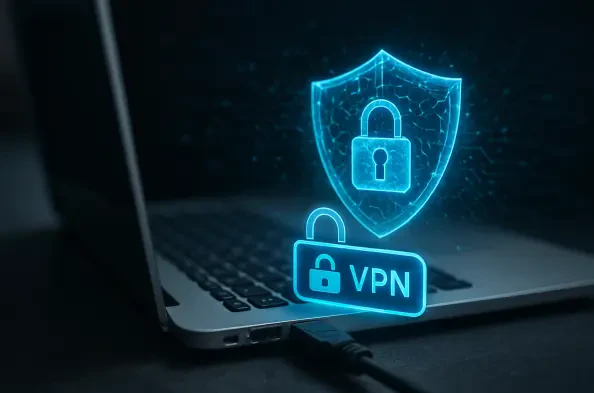In an era where online privacy is increasingly under threat, with data breaches and surveillance becoming almost commonplace, the assurance of a trustworthy virtual private network (VPN) has never been more critical for users worldwide who seek to protect their personal information from prying eyes. The recent independent audit of Proton VPN, a service renowned for its commitment to safeguarding user data, has once again confirmed its strict no-logs policy, setting a high standard in an industry often criticized for opacity. This evaluation, conducted by a reputable security firm, offers a detailed look into the provider’s practices, affirming that user activity remains untracked across all subscription plans. As privacy concerns continue to shape consumer choices, this audit not only reinforces Proton VPN’s credibility but also highlights the growing importance of transparency in digital security tools. The findings provide a compelling case for why users seeking reliable protection should pay close attention to independently verified claims in the VPN market.
Privacy as a Core Principle
Reinforcing Trust Through Independent Verification
The significance of a no-logs policy cannot be overstated in the VPN landscape, where many providers make bold claims about privacy without substantiating them with evidence. Proton VPN distinguishes itself by subjecting its operations to rigorous third-party audits, with the latest assessment conducted by Securitum, a respected firm known for its meticulous evaluations. This audit, carried out at the company’s headquarters in Zürich, Switzerland, scrutinized the service’s infrastructure and data handling practices across all tiers, including its widely used free plan. The results are unequivocal: no user activity, metadata, or network traffic content is stored on production servers. This means that browsing history, DNS queries, and session timestamps remain entirely private, aligning with the provider’s promise to prioritize user anonymity. Such transparency is rare, especially for a service that offers a no-cost option, and it addresses widespread skepticism about free VPNs potentially compromising privacy.
Designing Systems for Anonymity
Beyond the audit’s findings, Proton VPN’s architecture itself is built with privacy at its core, ensuring that data retention is practically impossible by design. The service processes internet traffic without keeping identifiable records, a practice applied uniformly across its global network of servers, regardless of a user’s subscription level. This approach counters common industry pitfalls where logs might be inadvertently created or stored due to poorly configured systems. Notably, the audit revealed that even on free-tier servers, where resource management is critical, the only deviation from the no-logs policy is a mechanism to block BitTorrent (P2P) traffic—a measure aimed at maintaining network efficiency rather than invading privacy. This deliberate design choice underscores a commitment to protecting user data, setting Proton VPN apart from competitors who may prioritize operational convenience over strict privacy standards. The absence of invasive techniques like Deep Packet Inspection (DPI) further solidifies this stance.
Industry Standards and Transparency
Setting a Benchmark for Accountability
The VPN industry is witnessing a rising demand for accountability, as users grow wary of unverified promises and hidden data collection practices often associated with free services. Proton VPN responds to this trend by not only undergoing regular independent audits but also making its applications open source, allowing public scrutiny of its code. Founded by scientists from CERN, the company embraces a culture of peer review and openness, challenging the notion that free VPNs must trade privacy for sustainability. Supported by revenue from paid subscribers, the free tier defies industry stereotypes by offering robust protection without compromising user data. This model positions privacy as a universal right, accessible to all, and sets a precedent for how providers can balance accessibility with stringent security measures. The audit’s validation of these practices highlights a broader shift toward transparency as a competitive advantage in the market.
Building Consumer Confidence in a Skeptical Market
The implications of Proton VPN’s audit extend beyond its own operations, reflecting a critical need for trust in an industry often plagued by dubious claims. Securitum’s report explicitly states that no evidence of user activity logging or traffic monitoring contradicts the company’s no-logs policy, a finding that carries particular weight for a free service. This counters prevalent concerns about hidden data harvesting, a fear that deters many from using no-cost VPNs. While any provider could theoretically track user activity as an intermediary for internet traffic, Proton VPN’s consistent audits and transparent practices foster confidence among users. The broader takeaway is clear: independent verification is essential to distinguish credible services from those making empty promises. As privacy becomes a deciding factor for consumers, such validations play a pivotal role in shaping perceptions and encouraging other providers to adopt similar levels of openness and accountability.
Final Reflections on Privacy Validation
Looking back, the comprehensive audit of Proton VPN marked a significant moment in affirming the service’s dedication to user privacy through its unwavering no-logs policy. The meticulous evaluation by Securitum revealed no tracking of user activity or metadata across the global server network, a testament to the provider’s privacy-by-design approach. Moving forward, users seeking reliable VPN solutions should prioritize services with independently verified claims, using this audit as a benchmark for evaluating other providers. Additionally, the industry as a whole could benefit from adopting greater transparency, with regular audits and open-source practices becoming standard to rebuild trust. For those concerned about online security, exploring Proton VPN’s offerings—whether free or paid—presents a viable option backed by proven accountability. This validation ultimately serves as a reminder that privacy is not just a feature but a fundamental right worth safeguarding through rigorous and transparent practices.






